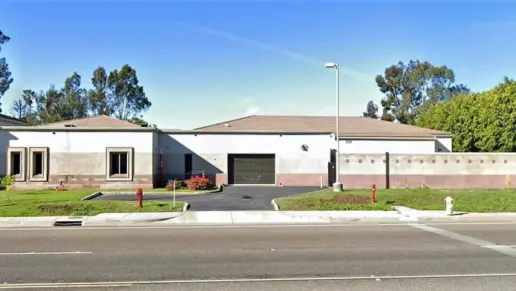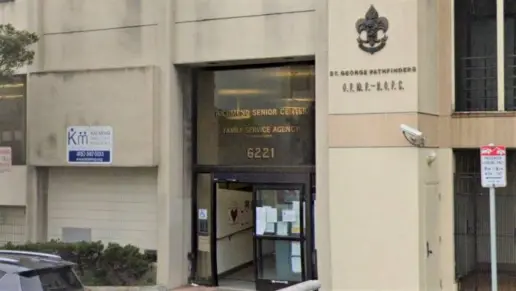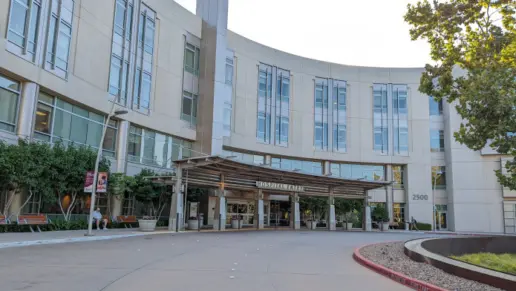About Tender Loving Mercy
Tender Loving Mercy offers drug and alcohol rehab and mental health treatment for individuals in Oceanside, California. They also provide valuable community resources, including eating disorder treatment, anger management, behavioral health, and couples counseling.
Treatment at Tender Loving Mercy begins with a mental health assessment to screen for symptoms of addiction or co-occurring mental health disorders. Other services include the following:
In the Intensive Outpatient Program (IOP), participants attend individual and group treatment sessions for improved coping skills, peer support, and recovery support meetings, like 12-step programs. Sessions are held 3-4 days a week.
Continuing care is an aftercare program designed to support individuals following successful completion of the IOP. Participants receive a comprehensive aftercare plan that includes relapse prevention strategies, attendance at 12-step recovery meetings, and regular check-ins with their drug and alcohol counselor.
Many major insurers, such as BlueCross BlueShield, Cigna, United Healthcare, and others, cover some or all of the costs of mental health and/or addiction recovery services when deemed medically necessary. Contact your provider to verify coverage because out-of-network benefits can vary.
Latest Reviews
Rehab Score
Addiction Treatments
Levels of Care
Treatments
The goal of treatment for alcoholism is abstinence. Those with poor social support, poor motivation, or psychiatric disorders tend to relapse within a few years of treatment. For these people, success is measured by longer periods of abstinence, reduced use of alcohol, better health, and improved social functioning. Recovery and Maintenance are usually based on 12 step programs and AA meetings.
Drug rehab in California teaches participants constructive ways to stay clean and sober. Treatment revolves around helping individuals stop using the substance they are addicted to and learn healthy habits to avoid relapse.
Many of those suffering from addiction also suffer from mental or emotional illnesses like schizophrenia, bipolar disorder, depression, or anxiety disorders. Rehab and other substance abuse facilities treating those with a dual diagnosis or co-occurring disorder administer psychiatric treatment to address the person's mental health issue in addition to drug and alcohol rehabilitation.
A combined mental health and substance abuse rehab has the staff and resources available to handle individuals with both mental health and substance abuse issues. It can be challenging to determine where a specific symptom stems from (a mental health issue or an issue related to substance abuse), so mental health and substance abuse professionals are helpful in detangling symptoms and keeping treatment on track.
Opioid rehabs specialize in supporting those recovering from opioid addiction. They treat those suffering from addiction to illegal opioids like heroin, as well as prescription drugs like oxycodone. These centers typically combine both physical as well as mental and emotional support to help stop addiction. Physical support often includes medical detox and subsequent medical support (including medication), and mental support includes in-depth therapy to address the underlying causes of addiction.
Programs


Clinical Services
Whether a marriage or other committed relationship, an intimate partnership is one of the most important aspects of a person's life. Drug and alcohol addiction affects both members of a couple in deep and meaningful ways, as does rehab and recovery. Couples therapy and other couples-focused treatment programs are significant parts of exploring triggers of addiction, as well as learning how to build healthy patterns to support ongoing sobriety.
Research clearly demonstrates that recovery is far more successful and sustainable when loved ones like family members participate in rehab and substance abuse treatment. Genetic factors may be at play when it comes to drug and alcohol addiction, as well as mental health issues. Family dynamics often play a critical role in addiction triggers, and if properly educated, family members can be a strong source of support when it comes to rehabilitation.
Group therapy is any therapeutic work that happens in a group (not one-on-one). There are a number of different group therapy modalities, including support groups, experiential therapy, psycho-education, and more. Group therapy involves treatment as well as processing interaction between group members.
In individual therapy, a patient meets one-on-one with a trained psychologist or counselor. Therapy is a pivotal part of effective substance abuse treatment, as it often covers root causes of addiction, including challenges faced by the patient in their social, family, and work/school life.
Contact Information
1907 Apple Street
Suite 8
Oceanside, CA 92054


